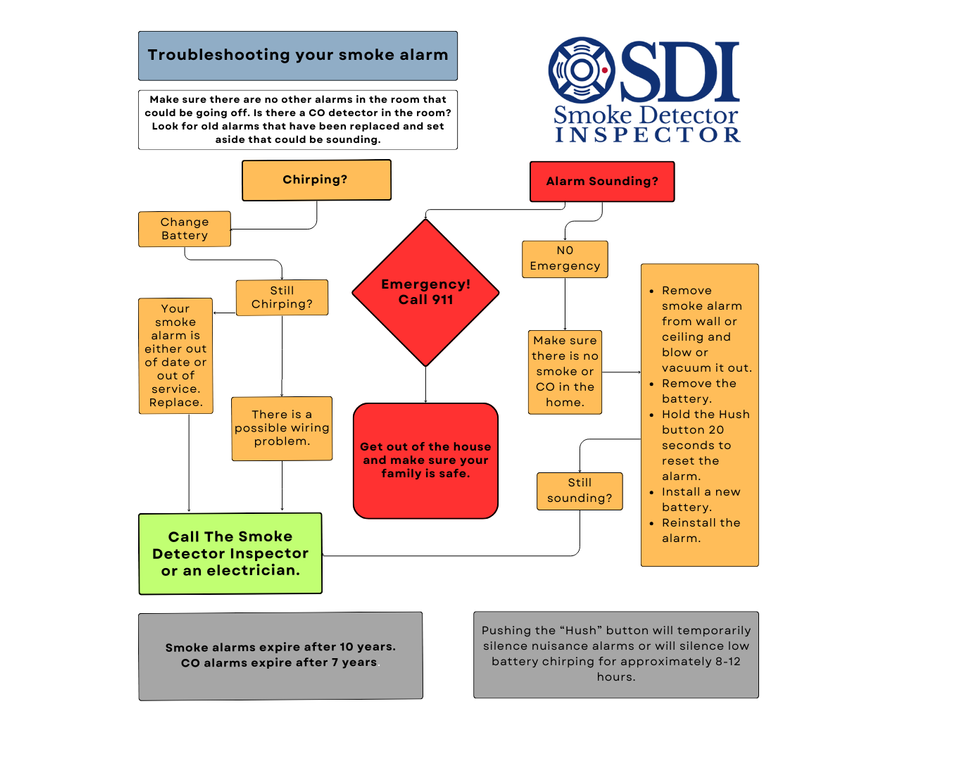Troubleshooting:
What to do when your smoke alarms chirp:
This is a sign of a battery needing to be replaced, an expired alarm or a wiring issue. The alarm will chirp approximately once every minute. The best way to fix this issue is as follows:
Take the detector off of the wall or ceiling.
Ensure the detector is not expired. (Most detectors expire after ten years)
Remove the battery and hold down the test button for about twenty seconds.
Take it outside and blow or vacuum out the detector as best you can.
Put a new battery in. Reconnect the wiring and mount the alarm to the bracket.


Alarm beeping:
Alarm sounding means something has set off the alarm.
Continued set of 3 beeps= Smoke or fire- get out!
Ensure the home is clear of smoke or CO.
Blow or vacuum out alarm to remove possible insects, cobwebs, dust, etc.
Hush feature- push test/hush button.
Silence nuisance alarm for 8 seconds by desensitizing the alarm.
What kind of alarm should I get?
Ionization vs photoelectric-
Ionization- more responsive to flaming fires. Detect smaller particles (Fast moving fires) commonly found in kitchen or garage.
Photoelectric- more responsive to smoldering fires. Detects larger particles from slow moving fires (Couch or bedding).
NFPA recommends having both present in your house.
NFPA indicates that elevation above 3000 ft may impact ionization alarms. Therefore it is recommended to use photoelectric alarms at altitude.
Hardwired or battery only?
If your home was built after 1989 there is a good chance you have hardwired (Interconnected) smoke alarms. These alarms talk to each other through an additional wire in the harness and they all go off when one goes off. However, the recommendations for alarm placement from the National Fire Protection Association have changed since then. It is now recommended to have smoke alarms in each bedroom, outside of each bedroom and on every level of the house.
Carbon monoxide alarms should be on every level of a house when there is any gas burning appliance. These need to be replaced every seven years. Batteries should be changed annually.
Independent alarms are not hardwired and will not make all of the alarms in the house go off at the same time. It is recommended to get alarms that will talk to each other through radio frequency in cases where your house is not hardwired up to the current standards.
Detector locations-
Each bedroom
Outside each sleeping area within 21 ft of any door to a sleeping room.
Hallway between kitchen and sleeping area
If hallway is 30 feet or longer there should be one on each end
On levels without bedrooms, install alarms in the living room or near the stairway to the upper level.
Alarms should also be in the basement.
CO detectors should be on every level of the house. Plug-in units with a backup battery are good.
